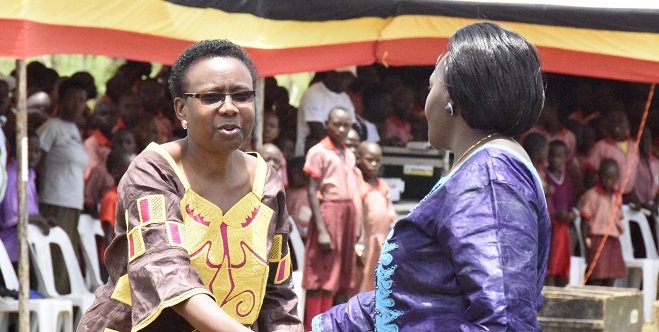
Currently although the WHO last year came up with a new guideline of Test and treat for people living with HIV, 92,000 people according to UAC figures have not yet been enrolled on treatment yet about 890,000 who have access to treatment may not be getting it consistently as required.
Speaking to The Independent on Oct.13 Sarah Opendi, the Minister of State for Health in charge of General Duties said due to competing priorities more funds cannot be availed for enrolling everyone on treatment as yet. Opendi said issues regarding pricing are being discussed by the concerned bodies and ministries together with prime minister to come up with a final resolution. She said government is keen to give more money for HIV treatment. Currently donations account for 80% of ARV requirements in the country.
Cipla says this is a problem because “donors can choose to buy drugs from other sources”.
In addition to HIV drugs, Cipla supplies the government with Tenefovir drugs for hepatitis B and is in line to supply another drug – Entecavir for hepatitis B in children below 12 years. There is anxiety that Cipla could use the same high prices for these drugs.
“The key issue with Cipla supplying hepatitis B medicines is that these are the same medicines where we are not getting a competitive price,” says Asia Russell, Executive Director of a Civil Society Organization – Health GAP (Global Access Project).
She blames Cipla’s monopoly. “Uganda needs a sustainable supply of generic treatment, but the medicines must be competitively priced,” she says.
She adds: “The demand of a national business for a subsidy is not on the same level as the need of people with HIV for access to life saving treatment. The government shouldn’t pit the two demands against each other as if they were equivalent”.
Big money involved
Both NMS and Cipla are not mentioning actual prices of drugs and are instead talking of percentages. In real terms, the money involved is big.
Last year, Cipla offered the government the cheapest HIV/AIDS drug to date; a single daily pill dose which costs US$13 (Approx. Shs45, 000) per month. If the government avails the drug to all the 240,000 eligible people, Cipla would bag Shs10 billion per month.
NMS buys six kinds of HIV drugs from Cipla and in its pricing the company enjoys a statutory 15% local content advantage. But Cipla charges NMS in excess of this subsidy. When the Inspector General Office of the Global Fund conducted an audit on utilisation of the money grants to Uganda, it found that Cipla charges NMS 36%more for HIV drugs than international prices.
According to article 6.2 of the Cipla MOU with the Uganda government, acceptable prices are those within the range of prices recommended by the Joint United Nations Children’s Fund (UNICEF)- United Nations Programme on HIV/AIDS (UNAIDS)- World Health Organisation (WHO) – Medecins sans Frontieres (MSF) project for ARVs and the international Drug Price Indicator for ACTs.
Even as NMS and Cipla continue fighting over price, the UgandaAIDS Commission (UAC) which is the government agency responsible for fighting the pandemic says it has a goal of decreasing HIV associated mortality by 70% by 2020.
Dr. Christine Ondoa, the Director General of UAC, says this will be achieved by increasing pre-antiretroviral therapy care to those eligible, sustaining the provision of long term care for patients onARTs, and improving quality of HIV chronic care. Whether this goal is attained will be determined by interventions government will take in ensuring consistent supply of drugs.
To date, the government has made no interventions to the red flags regarding Cipla whenever they are raised. Instead only justifications for the high price have been offered.
Even when officials fromNMS, Cipla, UgandaAIDS Commission (UAC) and Ministry of Health appeared before the Parliamentary Committee on HIV/AIDS and related matters on Oct.04, no resolution for price reduction was reached.
When The Independent contacted NMS CEO, Moses Kamabare and Cipla Executive Director Nevin Bradford, they refused to discuss the matter. But Wamboga says the unending blame games are paralyzing response to HIV.
He says if NMS negotiates better prices from Cipla, as they are required to do, along with new PEPFAR funding of up to $30million and Global Fund funding, more people living with the virus will have access to drugs.
****
editor@independent.co.ug
 The Independent Uganda: You get the Truth we Pay the Price
The Independent Uganda: You get the Truth we Pay the Price


